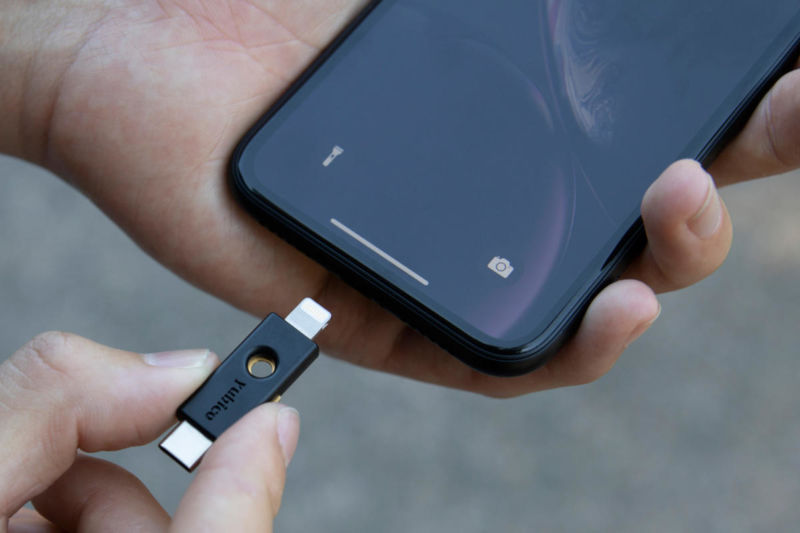iDevices finally get key-based protection against account takeovers

For the past couple years, iPhone and iPad users have been relegated second-class citizens when it comes to a cross-industry protocol that promises to bring effective multi-factor authentication to the masses. While Android, Windows, Mac and Linux users had an easy way to use the fledgling standard when logging into Google, GitHub and dozens of other sites, the process on iPhones and iPads was either painful or non-existent.
Apple's reticence wasn't just bad for iPhone and iPad users looking for the most effective way to thwart the growing scourge of account takeovers. The hesitation was bad for everyone else, too. With one of the most important computing platforms giving the cold shoulder to WebAuthn, the fledgling standard had little chance of gaining critical mass.
And that was unfortunate. WebAuthn and its U2F predecessor are arguably the most effective protection against the growing rash of account takeovers. They require a person logging in with a password to also present a pre-enrolled fingerprint, facial scan, or physical security key. The setup makes most existing types of account takeovers impossible, since they typically rely solely on theft of a password.
Comments
Post a Comment